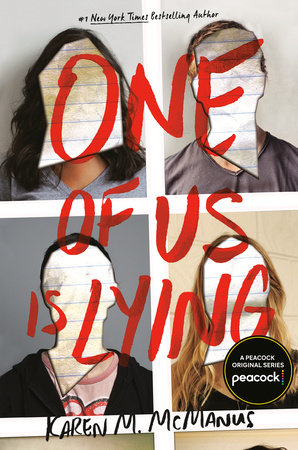
Source: Barnes & Noble
The Wife Between Us is a 2018 thriller written by
Greer Hendricks and Sarah Pekkanen. It was published by Pan Macmillian. The New
York Time Book Review called it “a fiendishly smart cat-and-mouse
thriller”, Glamour’s review stated “Buckle up, because you won’t be able
to put this one down” and Publishers Weekly referred to it as “jaw
dropping. Unforgettable. Shocking”.
A one-sentence description of the plot is that wealthy man’s
jealous ex-wife becomes obsessed with her replacement, a younger, more
beautiful woman he’s about to marry. Many other reviews cite a very compelling
description from the book itself:
“When you read this book, you will
make many assumptions.
You will assume you are reading about a jealous
ex-wife.
You will assume she is obsessed with her
replacement – a beautiful, younger woman who is about to marry the man they
both love.
You will assume you know the anatomy of this
tangled love triangle.
Assume nothing.”
While I won’t begrudge anyone’s
opinion, I can’t say I fully agree with the reviews I’ve mentioned above. The
narrative is captivating at first. Unfolding through alternating POVs between
Vanessa, Richard’s ex-wife, and Nellie, his young fiancé, the first half of the
novel reads very well. The suspense builds as Vanessa gets more desperate and
makes her way closer to confronting Richard’s new fiancé. Nellie’s fear about a
woman who can’t seem to leave her alone, or move on with her life is palpable.
The tension continues to build and build to the point where you wonder exactly
what will happen when Nellie and Vanessa cross paths.
Then, the twist happens. Halfway
through the narrative, a first twist is revealed. It shifts the narrative so
that the reader is forced to reevaluate everything occurs up to that point.
Unfortunately, the first twist is where the story falls apart. All of the
tension built up to by that point washes away and the novel becomes a fairly
adequate, by-the-numbers, drama. I would barely call it a thriller since, after
that first twist, there’s very little suspense going on. More twists follow,
each meaning less and less in terms of the narrative.
The novel is over four hundred
pages, but there’s a lot of nothing that happens. Some of the filler in the
story, or sidebars to explain certain details, are probably meant to make later
twists mean more, or ramp up tension fail to do so. The story doesn’t need to
go from one massively important scene or revelation to another, but way too
much of the second half of the book is taken up by Vanessa reflecting on “what
went wrong” with her marriage, which isn’t hard to figure out.
The novel is very trope heavy.
Vanessa is a divorcee living a sad existence after her marriage falls apart. As
soon as the divorce happens, her whole life loses meaning and she winds up
living with her aunt and working in retail. Nellie is a naïve girl who’s caught
up in this whirlwind romance with a successful businessman who gives her
everything she could ever want. Richard is suave, powerful and lures Nellie in,
despite hiding a secret. My biggest complaint when it comes to tropes is in
Vanessa’s behavior towards Richard’s new fiancé. Her actions depict her as a
crazy ex-wife which makes it even harder for her to pull off the one thing
she’s trying to do. I’m really tired of reading the crazy ex-wife trope or the
use of mental illness (its implied by Richard that Vanessa’s mentally ill
because her mother was) as a plot device to explain why a character shouldn’t
be trusted.
The Wife Between Us is a good book, it isn’t fantastic and the narrative treats the plot twists like they are smarter than they really are. If someone
asked me “is this book good”, I’d say yes. If I was asked “would you recommend
it”, I might say yes, depending on my mood.
Rating: 3 stars.


